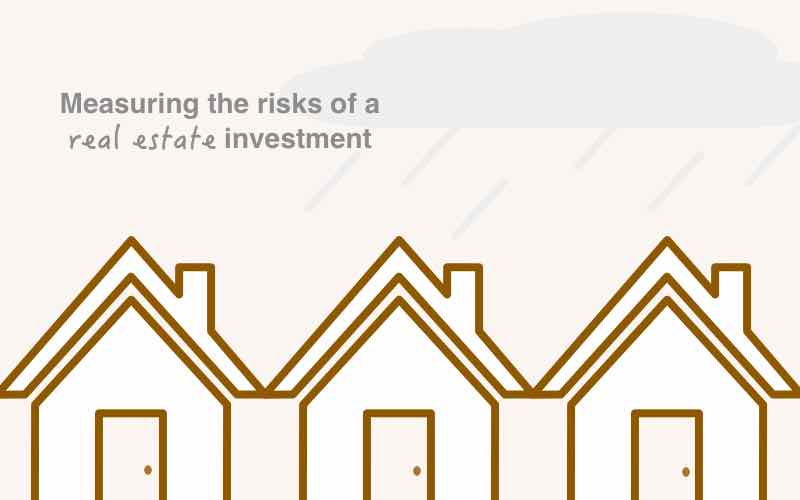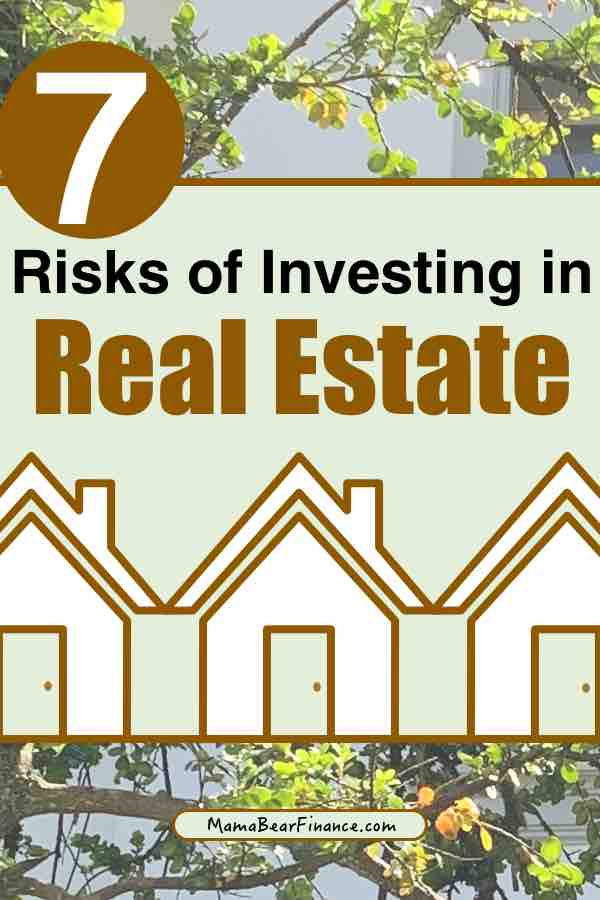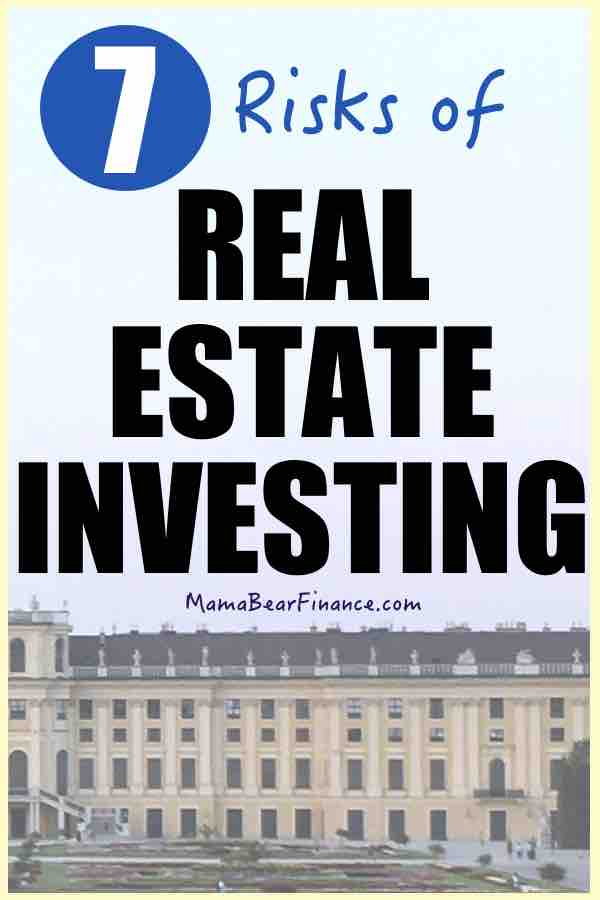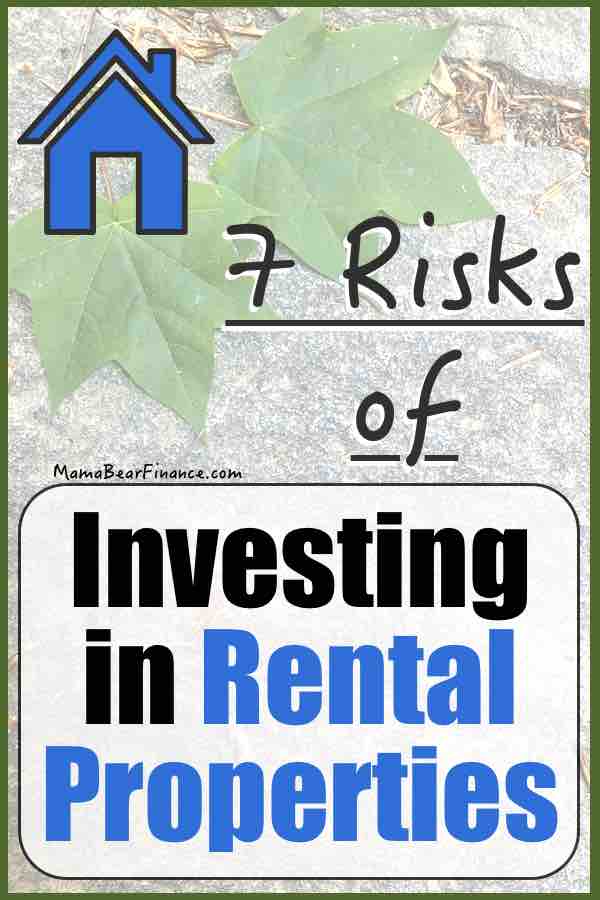Have you dabbled in the prospect of investing in rental properties, particularly in residential real estate? With interest rate now at an all-time low and an economy teetering towards recession, this might be an opportune time to consider it.
The upside of investing in real estate is the ability to collect rent payments as well as the prospect of asset appreciation. But truth be told, there’s also a long list of risks that can render real estate investing unattractive.
Today we will explore these risks and figure out if investing in residential real estate is the right choice for you.

This post may contain affiliate links, which means I may receive a commission, at no extra cost to you, if you make a purchase through a link. Please see my full disclosure for further information.
Assessing the Risks of Investing in Residential Real Estate
Investing in real estate properties can be a dream for many because of the “passive” stream of income. I use passive loosely because depending on various circumstances, being a landlord is not as passive as one might think.
Nevertheless, real estate investment is a proven way to increase wealth for most people. This is especially true for those seeking financial independence.
In fact, here is an interview of a real estate investor who was able to quit her stressful 6-figure job to become a landlord and pursue her other passions.
So now that we acknowledged the upside of real estate investing, let’s evaluate the downside.
Methodology to Quantify Risk
Everyone has his/her risk tolerance – meaning, what may seem risky to me may not be so for you.
Therefore, to quantify the risk, I will use a scale of 1 -3 as follow:
- 1 = Risk is acceptable
- 2 = Risk is moderately acceptable
- 3 = Risk is unacceptable and intolerable
Once the risks are categorized, add up the total score. If your score is:
- 9 or Below = Investment is worth considering
- 10 – 15 = Proceed with extreme caution
- 16 or Above = You might lose sleep, so don’t do it!
Follow along to see what your risk appetite is for investing in residential real estate.
7 Risks of Residential Real Estate Investment
1. Risk of late rental payments
Owning real estate has many costs associated with it. And when a rent payment is late, the cost continues.
For example, the cost of owning a property includes mortgage cost, insurance, taxes, maintenance, water bill and other miscellaneous cost.
Even if a property is fully paid off, taxes will always be there.
Therefore, anytime that a tenant is late on rent payment, it’s a loss for the landlord unless the tenant can catch up later on.
If you buy a rental property, you should be prepared to stomach this risk. I would imagine a six-month reserve to be prudent.
For this, I believe this risk is moderately acceptable.
Score: 2
2. Risk of missed rental payments
It’s one thing when a rent payment is late, it’s another when it’s missed entirely.
This means that the tenant must have gone through at least 2-3 months of late payments and cannot catch up. Therefore, this automatically translates into loss revenue.
This is probably the biggest risk for a landlord because incurring losses for an extended amount of time could lead to foreclosure if you’re holding a mortgage.
Even without a mortgage, having missed payments from tenants means that you’ll have to confront them.
This is why I find this risk to be exceptionally high and I might even lose sleep over it.
Score: 3
3. Risk of eviction
Depending on the rental contract and state law, the landlord has the right to evict a tenant after a number of missed payments.
When this happens, the landlord has to deal with sending the tenant an eviction notice and executing on that notice.
This is never easy. On one hand, if the tenant-landlord relationship is good, you might feel bad for evicting your tenant; if the relationship is strained, the tenant could react irrationally by damaging your place.
Either way, I personally wouldn’t like to deal with this type of issue so I would most likely try to mitigate this by hiring a property manager.
Score: 3
4. Risk of damaged property
If the tenant doesn’t take care of your property, then you may be left with holding the bag of fixing it up.
Sometimes, renovation can be extremely costly that could wipe out the entire profits earned.
I think this is where screening a tenant to be extremely important, and having landlord insurance could mitigate the risk.
Score: 2
5. Risk of lawsuit
Lawsuits are not uncommon in the United States, and so when this happens, headaches ensue.
Even though real estate investing is generally known as a “passive” form of income, this really depends on various situations.
This is why it’s important to have a well defined rental contract in place which could require upfront lawyer cost.
And even though you may have an iron-clad contract, the risk of lawsuit is still there.
Score: 2
6. Risk of high vacancy rate
Having vacancy issue is similar to dealing with defaults from tenants – it’s a loss in rental income.
But instead of dealing with eviction, you might be dealing with how to attract the right tenant.
This includes the possibility of incurring marketing cost, handling visitor appointments, and up-keeping the empty space.
While it’s not ideal, it is still generally acceptable to have 1-3 months of vacancy. However, anything above three months can strain cash flow.
But unlike having tenant issue, you could always repurpose the rental real estate into an office space or rent it out to friends and family for a steep discount.
Therefore, this risk is not as high as the risk of dealing with default payments in my opinion.
Score: 1
7. Risk of low capital appreciation
Capital appreciation happens when an asset increases in value over time.
In real estate investing, the value of the property generally goes up. Check out this trend from Case-Shiller’s housing index which shows the pricing trend of the past 20 years.
However, it’s important to not just compare the home purchase value with the current market value, it’s also important to take into consider all of the costs of holding a real estate.
This includes accounting for transactional fees of buying and selling a property and real estate agent fees.
So even though a property might have gone up in value, it’s not a true value until it’s sold.
To mitigate this risk, I would look at the general trend of the neighborhood in terms of its property values and rental price overtime.
But regardless of how much research you do, macroeconomic events like a recession (or.. oh I don’t know, a pandemic) can derail your property value projection big time! Since this is outside of our control, low capital appreciation is a risk we have to assume.
And the best way to mitigate this risk is to buy and hold in the long-run IF the rental property proved to be profitable and without much headache overtime.
Score: 2
Should You Invest in Residential Real Estate?
My total score came out to be 15 which is just at the limit of “proceed with extreme caution.” This is not surprising because I was never attracted to investing in real estate as a priority knowing that better alternative investments are out there.
However, this could all change if:
- the price of renting in the area where I want to live is extremely high
- the price of buying a property is exceptionally affordable
- cost of holding onto this real estate is manageable.
All of these factors are broadly defined because no two real estates are the same. Sometimes, you might encounter a bad situation with a tenant and it could dramatically drive up cost. Or, you might get lucky where all stars aligned and investing in residential real estate makes complete sense.
But whatever it is, I think it’s important to not lose sleep over your investment. That’s why it would be worthwhile to assess your risk tolerance before diving in.
After all, no profit is greater than the benefit of peace of mind.
Related: Is Buying a Home Worth the Investment?

PIN this post




Hi,
I hope you are safe and healthy 🙂
I’m reaching to write a guest article on your own website and will send you some topics for that.
In case my ideas interest you, then I will send a post on any one of the topics chosen by you. The article is going to be of terrific quality and is free of cost.
I’d just need you to provide me a backlink within the article. Looking forward to a reply.
Thank you!
Regards.
Kristel Marquez
Great post and I couldn’t agree more: these are real risks in property investing that aspiring investors should consider. However, there are ways to mitigate these risks by getting the right level of landlord insurance and hiring expert property managers/tradesmen instead of managing the property yourself. The only times I hear about my properties now are every month via email (when I get my rent), when I get inspection reports quarterly (again, via email), and if there are repairs or issues with tenants, which is probably once or twice a year. If there are issues, the property manager handles everything for me. That’s why I consider it passive income UNLESS you’re managing the property yourself (which I will never do lol).
That sounds like the best way to invest! I’ll definitely look more into the cost of landlord insurance and hiring a property manager if I ever decide to take the plunge in rental property investment. Thanks for the tips!